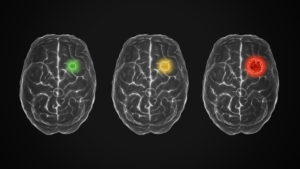
Merck and 4SC collaborate in immunooncology
4SC AG and Merck KgaA have signed a supply agreement to start clinical tests of Merck's checkpoint blocker avelumab plus 4SC's HDAC I blocker domatinostat.
Under the agreement, 4SC AG will sponsor clinical testing of a combination of its oral class I histone deacetylase (HDAC) blocker domatinostat (HDAC inhibitor) and Merck’s/Pfizers PD-L1 checkpoint inhibitor avelumab in patients with Merkel cell carcinoma (MCC).
MCC is an orphan, highly immunogenic type of non-melanoma skin cancer. In 2017, avelumab got FDA and EU approval for metastatic MCC. However, about 50% of this patient population do not respond, progress or relapse when treated with avelumab monotherapy. Domatinostat is an orally administered small molecule class I selective HDAC inhibitor which preclinically boosted the anti-tumour immune response, positively affected the tumour microenvironment by facilitating the infiltration of immune cells into the tumour.
In Phase I trials, domatinostat was well tolerated from patietns with several types of advanced hematologic cancers and 4SC observed positive signs of anti-tumour efficacy. To elucidate the potential of domatinostat as a booster of the immune response to tumours, 4SC not only conducts Phase ib/II combination studies with avelumab in MCC but also with MSD’s PD1 blocker pembrolizumab in patients with advanced-stage melanoma and with BMS’ nivolumab.
4SC also conducts a second Phase II study of domatinostat in combination with the avelumab in patients with advanced-stage microsatellite-stable gastrointestinal cancer at The Royal Marsden NHS Foundation Trust in London.


 Unsplash+
Unsplash+
